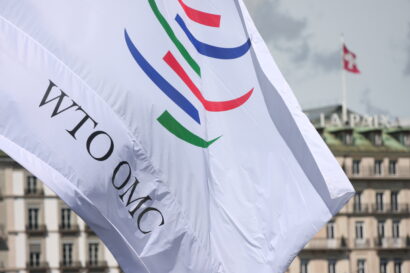Intangible assets are more valuable than ever before. The Global Intangible Finance Tracker found that 52% of the overall enterprise value of all publicly traded companies worldwide resides in intangibles, with a total worth of US$57.3 trillion. In some sectors like cosmetics, internet and software, media, and drinks, intangibles account for 80-90% of enterprise value. A major type of intangibles are ‘marketing intangibles’, which include brands, trademarks, trade names, and customer data, lists and relationships that help in selling goods or services. The current international tax system does not do a good job of reflecting the value of marketing intangibles to today’s business models. Therefore, there is a need to revise the existing tax rules in order to reflect digitalised business models and give African countries a fair share of the tax base of multinational companies.
How do marketing intangibles generate value from market jurisdictions?
Companies use advertising and marketing to influence customers’ minds and create a favourable perception of the brand that they seek to promote. The digital era provides subtler means to achieve a similar outcome. Potential customers are offered free access to email, a search engine and map data in return for valuable data about themselves. As an example, a presenter at a workshop might make reference to an internet search engine on “How to prepare a good presentation.’’ The search engine will promptly offer the user with many possible answers to their need. However, there is a powerful algorithm in built within the platform that will quickly seek to profile the user to generate marketable data by corroborating various details about them. The algorithm will quickly determine that the kind of search criteria that has been made is for workshopping purposes. If the search was made over the presenter’s mobile phone, the algorithm will determine the user’s location using already inbuilt map information.
The user has unwittingly supplied valuable data about themselves that will be used to target them for other products or services that may be available to them at that location. This data may get sold to other businesses such as those that manufacture presentation pointers or nearby shopping areas to the user’s location all of which will either send the user targeted advertising or emails to entice them to take up their products or services. Accordingly, what began as an innocent inquiry has generated value to the digital platform.
The user’s country is, by definition, a ‘market jurisdiction’ in which the intangible property is being exploited remotely even when the owners of the intangible property have no physical presence. The user’s affinity to the platform in those jurisdictions is a marketing intangible. Because of this, the value generated through the platform’s revenues should partly be attributed to the market jurisdiction, in the form of a right to tax the platform’s profits. After all, value is already attributed to the jurisdictions in which other intangible assets, such as algorithms, patents and brands, are located. What makes the case of marketing intangibles different is that the traditional profit allocation rules, which assume a physical presence within a jurisdiction, do not attribute taxing rights in the market jurisdiction in these instances.
How users add value
Additionally, digital platforms thrive on network engagement. The more users in the market jurisdiction, the better for the platform. This will give more vitality to the platform through popularising the platform for even more users. As an example, a hotel digital booking platform will seek to connect hosts to lodging clients. The more hosts on the platform, the greater the likelihood of better and cheaper accommodation to the clients due to the competition among hosts. Additionally, the more clients, the likelihood of new clients obtaining reviews on specific hosts which could facilitate easy decision making for potential hosts. Hosts will also have a better chance of hosting due to the numerous clients and will be offered access to reviews that will help them in determining the optimum lodging out prices for their property or in decisions on how to enhance their service offering. Again in this situation, some of the value generated by the digital hotel booking platform is attributable to the users in the market jurisdiction, and this ought to be taken into account in allocating taxing rights.
Current Proposals: what would benefit African countries
The OECD’s Inclusive Framework is considering how to adapt international tax rules to allocate more profits to market jurisdictions. One of the three proposals suggested by its members was to do so by taking into account the existence of marketing intangibles. That has now been subsumed into a new set of proposals in which more profit would be allocated to jurisdictions in which marketing, distribution, and user-related activities take place. Such proposals go beyond a focus on highly digitalised businesses.
The marketing intangible proposal was made by the United States, but since market jurisdictions stand to be net winners in any reform designed to strengthen taxing rights over digital businesses, there is a congruence here between the US’s interests and those of African countries. The 3rd ATAF technical note on digitalisation of the economy elaborated on this. As that note sets out, it is important that the eventual rules do not only benefit jurisdictions with huge market bases and purchasing power, but also take into account smaller economies such as those of the African countries. For example, an important concern for African countries is that the thresholds above which profits are allocated to market jurisdictions are not set too high.
It has also been proposed through the Inclusive Framework that simplified methods will be used in allocating these profits to market jurisdictions. Existing transfer pricing rules can be complex to administer, especially for digitalised business models. This underscores the benefits that the proposals currently under discussion could provide to developing countries: a greater share of the tax revenues from digitalised businesses, and a simpler approach to administration that is easier to enforce.



